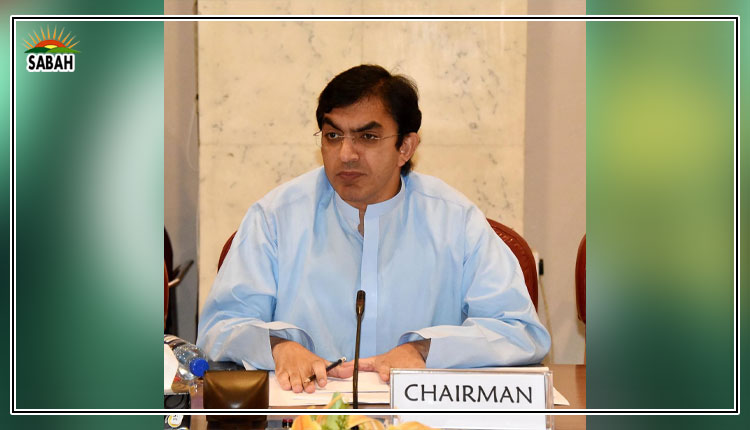NA Panel on Foreign Affairs conduct public hearing on ‘Paradigm shift in Pak-Afghan partnership for peace in emerging int’l situation’
ISLAMABAD, August 07 (SABAH): The National Assembly Standing Committee on Foreign Affairs conducted a comprehensive public hearing on ‘Paradigm shift in Pak-Afghan partnership for peace in emerging international situation’ in Islamabad.
The Chairman of the Committee MNA Mohsin Dawar stated that Pakistan’s Afghan policy was always framed behind closed doors and regretted that Pakistan has ceded this crucial space to unelected institutions. Politicians, diplomats, journalists, businessmen and academics addressed the public hearing and underlined the need for a paradigm shift in Pakistan’s Afghan policy to build trust and promote peace and shared prosperity in the region and beyond.
They panelists regretted that Pakistan’s Afghan policy doesn’t stem from the collective wisdom of the Parliament nor there is substantial parliamentary debate and public discourse on the Afghan policy. They highlighted that the policy makers have effectively ceded this crucial space to non-elected and unaccountable institutions. It was maintained that lack of understanding of what’s happening in Afghanistan and Pakistan’s irrational obsession with Durand line continue unabated.
The power wielders vis-à-vis Afghanistan have always adopted a short-sighted adhoc based approach to dealing the Afghanistan situation. They underlined the need that the Parliamentarians should reclaim their space vis-à-vis foreign policy and open public debate on the Afghan policy. It was vehemently stressed that political ownership of the Afghan policy was critical to rebuild the lost trust with Afghanistan.
The speakers highlighted that Doha deal effectively legitimized Afghan’s surrender to Taliban. One of the speakers termed Doha Deal a ‘surrender document’. It was highlighted that Pre and post-American withdrawn Taliban have not witnessed transformation in fact they continue to harbor radical tendencies vis-à-vis women’s education or formation of an inclusive government. They stressed that Pakistan should stand with the Afghan populace and advocate for their due fundamental rights. On the question of the Afghan Taliban support for Tehreek-e-Taliban Pakistan (TTP), the speakers maintained that the Afghan Taliban would never renounce support for their own affiliates.
The experts further stated that Pakistan should abandon the policy to interfere in internal affairs of Afghanistan or lobby for a particular group in Afghanistan as this alienate the Afghan populace. The speakers regretted that Pakistan’s lack of a clear-cut refugee policy and subsequent treatment meted out to Afghan refugees have fanned resentment against Pakistan. They stated that rampant corruption and inordinate delay in visa approval processes for Afghans, harassment at border entry points, mistreatment of Afghan visitors by Pakistani police and weaponization of cross-border movement hurt Pakistan’s own national interest.
The participants stressed on capitalizing strategic convergences including people to people relations, bilateral trade and cooperation in health and education sector to allay the simmering mistrust on both sides. The speakers unanimously stressed that sustained engagement, shared economic progress and dialogue is the key to bring about a paradigm shift in Pak-Afghan partnership for peace in emerging international situation. The experts maintained that Pakistan should leverage its soft power and take steps to increase economic interdependence. They underlined that limitations on cross-border trade should be lifted and both the states should engage in transnational mega projects in consortium with other regional countries.
The public hearing was attended by MNA Mohsin Dawar, former Senator Farhat Ullah Khan Babar, former Senator Afraisab Khattak, former MNA Bushra Gohar, Ambassador Sadiq Khan, Saleem Khan Safi, Asif Luqman Qazi, Ambassador Riaz Muhammad Khan, Muhammad Amir Rana, Iftikhar Fridous, Tahir Khan, Hassan Khan, Vice President Quetta Chamber of Commerce and Professor Ijaz Khattak.












